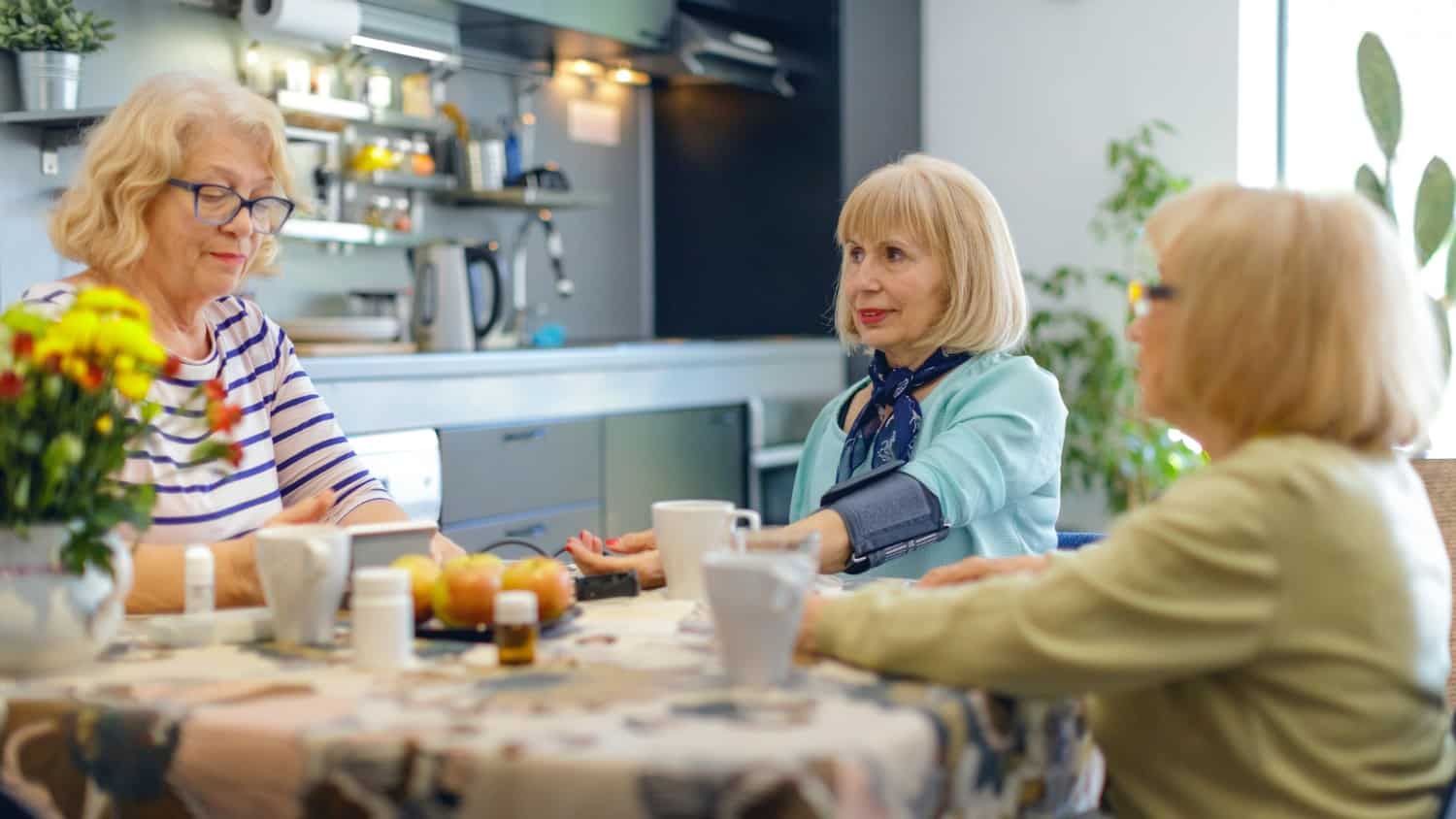
The Benefits of Mastering the Art of Small Talk After 60
Some people are naturally good at social interaction. You see them at parties and events, surrounded by groups of other guests, talking, laughing and having fun. They move around the room, igniting small fires of goodwill. Everyone loves them.
As a woman over 60, you may long to be more socially confident. You want to feel more at ease in social situations. Your past experiences, however, may bring back reminders of feeling awkward. You may not be comfortable even starting up a conversation, especially after two years of various lockdowns.
Perhaps you worry that you will end up asking inappropriate questions or laughing at the wrong times. You are terrified of feeling lonely and out of place.
You suspect that there is some magical secret to the art of social interaction. You may think that some people are just born with it. Others, like you, simply don’t have a clue. In reality, there is a common skill that everyone knows about, but few have mastered. This is the ability to make small talk.
Being able to start conversations with ease and success has many rewards for those who are good at it.
People Will Like You
For one thing, being a good talker makes other people relax and feel good. Many guests at an event may also be feeling anxious and stressed. By making that first move to connect, you are taking the focus off yourself and helping other people to feel lighter and more included.
If you master the art of small talk, people will immediately like you. Small talk isn’t just about overcoming awkward silences and filling in the spaces. It is a gesture of consideration and respect.
Your Brain Will Smile
Being able to engage with other people comfortably is good for your mind. Small talk forces you to focus and pay attention to someone else. It prompts you to take another person’s perspective on things. It allows you to refine your social skills and gives you a confidence that can be applied to other situations.
Small talk can also open up opportunities. It can take a conversation from a merely pleasant exchange to the beginning of a relationship or friendship. You never know what connections you can make with a few friendly words!
You Can Make Others Feel Relaxed
You can stop being the shy guest and can easily transform yourself into a passable conversationalist. With some luck you might become the life of the party! The hardest part is getting through the first few words. The truth is the person you are about to talk to is happy you have stepped up to start a conversation. This will make your jitters go away.
So what is the secret to mastering the ‘art’ of small talk?
Establish a Shared Experience
At an event or party, walk up to someone standing alone. Start with an opening statement that suggests you might have something in common. You are both at the event so you can say, “Great event, isn’t it?” or, “That last speaker was so interesting!” What you are trying to do is establish a shared experience, so the level of sophistication doesn’t matter. Your goal is to just get the conversation started.
Share Your Feelings
Now you can bridge the gap even further by sharing something of yourself. For instance, you can simply say you are having a great time. Share something positive about the host or setting. Now leave it open for the other person to share something about how they feel.
Ask Open-Ended Questions
Once you get over the first hump, you can continue by asking an open-ended question. These are questions that don’t require a one or two-word answer.
For example, instead of asking, “How long have you lived here?” (which can be answered by a number) you could ask one of the following:
- Why did you decide to live here?
- What do you like about living here?
- Tell me about…
- What inspired you to…
Use Active Listening
Another way to get a person engaged in a conversation with you is to use active listening. This is where you take the person’s phrase and repeat it back to them. It shows you are paying attention and care about what that person thinks. It can be overused, so be careful not to sound condescending and annoying. Done right, it can be very effective.
The conversation may then reach a natural lull. This might be a good time to disengage. Either say or use body language to show you have enjoyed the conversation. This could be a light touch on the elbow or a smile. Then you can exit gracefully, and move on. If the conversation has really sparked a common interest, you may have made a new friend. So you can have another drink and continue the conversation!
How good are you at the art of small talk? What techniques have you used to get a conversation going? Can you think of some ways you can practice how to talk to strangers? Please join the conversation.
Tags Friendships






